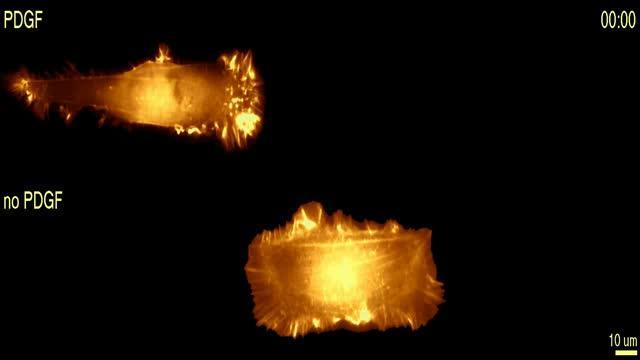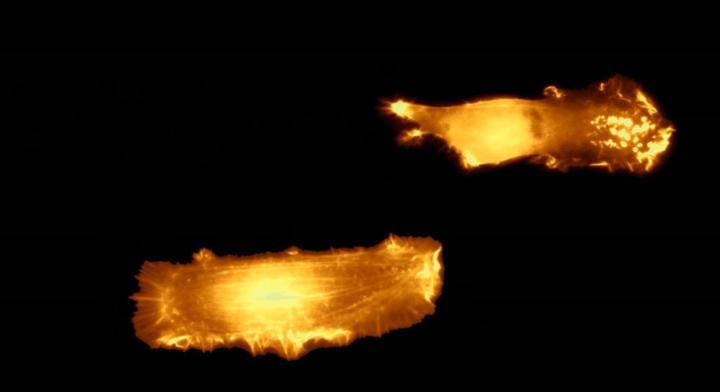Mimicking organisms
In their study, scientists around Prof. Olivier Pertz from the Department of Biomedicine at the University of Basel gained novel insights into the regulation of directional cell migration: Using a special procedure, 20 micrometer wide lines were fabricated on glass thereby mimicking the connective tissue environment – creating a highway for cells. In addition, cells were stimulated with a growth factor (PDGF) which led to fast cell migration in only one direction lasting for many hours.
"This shows that we can achieve robust and directional cell migration by mimicking the geometry of connective tissue as we find it in the body," tells Olivier Pertz. Certain dot-like structures, that are always located at the front of the cell, adopt a crucial role in maintaining long term polarized cell migration.
The research results give novel insights into how signaling pathways are regulated in time and space in order to facilitate migration of cells only in one direction. The scientists describe novel concepts of cell migration, which could help to find new targets and approaches to fight cancer metastasis and inflammation. "The more insights we get into the mechanisms of cell migration, the more effectively and focused we will be able to intervene in certain pathological processes," first author Dr. Katrin Martin comments.

The cell stimulated with the growth factor PDGF (upper cell) migrates targeted in only one direction on its track, while the not stimulated cell (lower cell) changes its direction of movement periodically and migrates approximately five times slower.
(Photo Credit: University of Basel, Department of Biomedicine)

The cell stimulated with the growth factor PDGF (upper cell) migrates targeted in only one direction on its track, while the not stimulated cell (lower cell) changes its direction of movement periodically and migrates approximately five times slower.
(Photo Credit: University of Basel, Department of Biomedicine)
Source: University of Basel